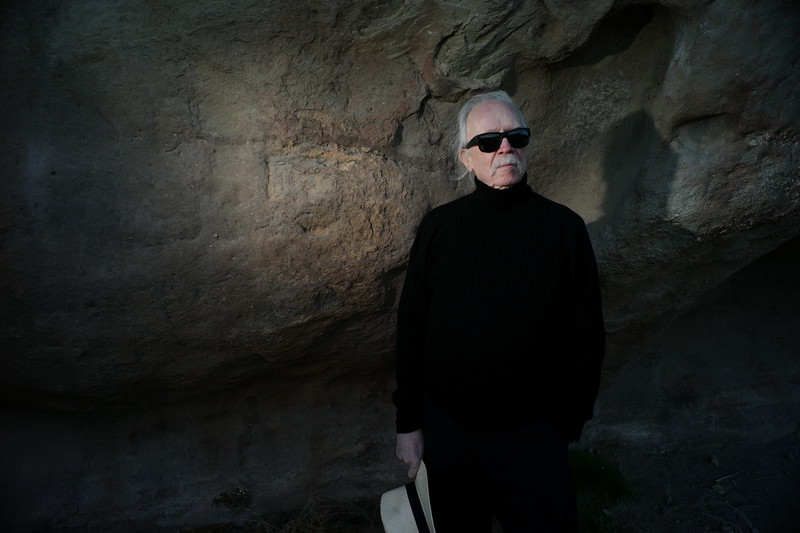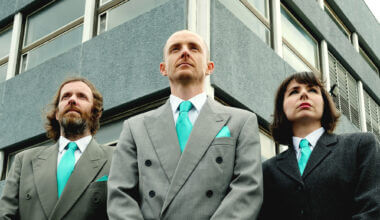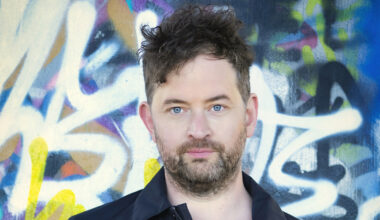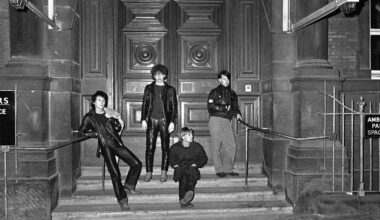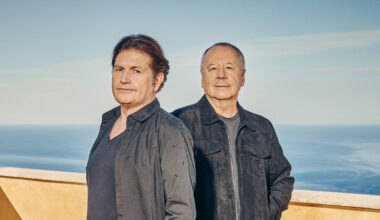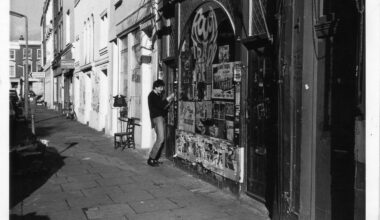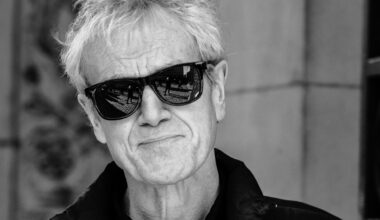Famed not only for his horror films, but also for their breathtaking soundtracks, we catch up with John Carpenter on the eve of his latest venture… a reworking of the legendary ‘Halloween’ score
The Horror Master has had a career change.
“It’s the greatest, it’s tremendous,” John Carpenter tells us. “It’s unexpected. It wasn’t something I chased around, it just sort of dropped in my lap. And here I am.”
Unless you have completely removed yourself from society for the last four decades, you will be most au fait with John Carpenter, the film director. With a legacy that includes 1976’s action thriller ‘Assault On Precinct 13’, 1978’s slasher ‘Halloween’, 1981’s dystopian ‘Escape From New York’, the sci-fi horror of 1982’s ‘The Thing’ and martial arts highs of 1986’s ‘Big Trouble In Little China’, his name is synonymous with the cinema of the 70s and 80s.
He’s scored several of his own films, some of which have received the reissue treatment on Death Waltz Records over the past few years. Back in 2015, he released his first studio album, ‘Lost Themes’, which was recorded with the help of his son Cody Carpenter and his godson Daniel Davies (who regular readers of Electronic Sound will be familiar with). A record dripping in atmosphere across nine intriguing compositions, ‘Lost Themes’ was almost a soundtrack to an unrealised Carpenter movie. A sequel, ‘Lost Themes II’, was released in 2016, followed by ‘Anthology: Movie Themes 1974-1998’ the following year, in which Carpenter re-recorded and updated some of his best-known accompaniments. And scoring films is precisely the reason we’re chatting to him today: specifically, about the music for his influential ‘Halloween’.
Let’s return to the original film for a minute. It’s been almost 40 years since Michael Myers (otherwise known as “The Shape”, played by writer and director Nick Castle) first escaped from his sanitarium to stalk high school student Laurie Strode, played by Jamie Lee Curtis.
There’ve been a number of sequels and reboots since, but by the time you read this there will be another edition on the way. Yes, the ‘Halloween’ franchise is about to receive its 11th instalment, but rather than getting the standard Hollywood reset treatment, the 2018 edition is a direct sequel to the 1978 original.
It features the return of Curtis and Castle and, for the first time since 1982, John Carpenter as both executive producer and composer. The last time he had a hand in anything ‘Halloween’ related was on ‘Halloween III: Season Of The Witch’, which he produced and, along with fellow composer Alan Howarth, also scored. What was it like to return to such a beloved franchise again after all these years?
“It was really fun,” says Carpenter. “It was wonderful working with Jamie and my friend Nick Castle, who came back and played The Shape. The crews were bright-eyed and full of adventure, and they were very excited about what they were doing, which was great to see – they weren’t burned out yet.”
Considering that the last time he was involved, Ronald Reagan was president and Donald Trump was confined to the Forbes 400 list of the richest Americans, how did he even re-enter the world and music of ‘Halloween’?
“Well, first I became the executive producer on the movie,” he says. “I was asked to by American producer Jason Blum, and it was kind of a challenge. He said, ‘Rather than sitting around taking pot shots from the sidelines, why don’t you get in and try to make the movie better?’. And I thought, ‘You know, that’s not a bad idea’. Then I met with David Gordon Green and Danny McBride, who created the story for the movie, and they said they wanted me to do the music. And so I said, ‘OK, I’ll do it!’”
When he created the ‘Halloween’ score the first time round, the entire thing was done in three days. We imagine there was a little more room to breathe this time around…
“We had more than three days this time,” says Carpenter. “Working with my son and godson is great, it’s a family deal. They bring a lot to the table, so I don’t have to work as hard as it’s not all on me. We’ve made several albums together, so there’s already a shorthand – we don’t have to relearn our musical tastes and our abilities. We started early on in the process, so we had a little extra time to work on the score, which was just fabulous for us. We did two things. First, we went back and revisited some of the older themes from the first movie. We kept them and used them in the new film, but we also did some new music, which was a lot of fun. So it’s a combination of two things – the old familiar shit and new stuff.”
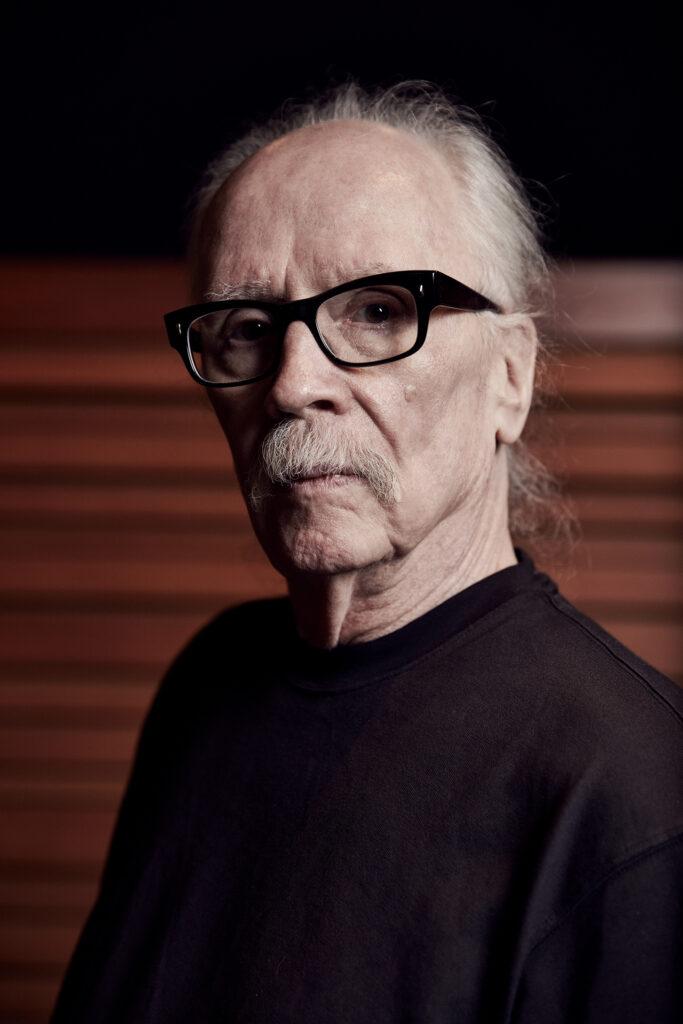
Carpenter explains that the three of them took the ‘Halloween’ music “to a different place”, making it “bigger and fuller”, but not much change was really needed.
“The ‘Halloween’ theme is the ‘Halloween’ theme,” he says. “It’s always going to be there, cranking along in 5/4 time. You can do it on a kazoo if you want, and it’s going to be OK.”
Even if you’re not familiar with ‘Halloween’, you’ll have heard its iconic theme at some point in your life. It’s a terrifying, panicked piano melody that sends shivers up the spine of the most battle-hardened horror movie veteran. The new score is just as spine-tingling as the original – if not more so. Sinister keys, swelling ominous synth lines and growling electronic textures place ‘Halloween’ firmly in 2018. However, when you’ve created a theme and a score as iconic as that, realising your work anew surely comes with a certain amount of pressure?
“No,” says Carpenter. “There’s no pressure at all. Pressure is brain surgery or something like that. That’s pressure. This is not pressure.”
And he’s in no rush to revisit any of his other scores either.
“No, God, I don’t care. I’m proud of what I’ve done in the past, because I know it served the movie I was making. But I don’t have anything I’m dying to do again, no.”
Carpenter feels that the original score is definitely of its time, certainly with respect to the equipment used.
“Those synths back then, you had to tune them up before you used them every single time.”
It was crude but, as he says, it “got the job done”. Nowadays, he’s armed with the far more modern digital audio workstation Logic Pro, which he has very high praise for.
“I love it. I have a lot of plug-ins which are brand new sounds, which are… they’re just great! I mean, man, what you can do nowadays – what is at your fingertips nowadays. We just didn’t have any of that back then. It’s much nicer now.”
From tuning synths to plug-ins and Logic Pro, and with three people working on the score rather than having just three days to do it by himself, it’s an understatement to say that the process between the two soundtracks , and the finished product, varies somewhat. Is there anything he prefers about either of them over the other one?
“Well, there’s several things in both directions,” he admits after a pause. “I’m very proud of both of them. The original score was done in three days, so it is what it is, it served a job and I’m very proud of it and what I was able to do. This score is much more sophisticated and has some things that I love going on in the music. I think it’s really, really cool. So both are great…”
And then he pauses again.
“Actually, that’s a terrible thing to say. I don’t know if they’re great. Somebody else has to say that. I don’t know that. Why am I even talking like that? Both make me happy, put it that way!”
So about that career change. While John Carpenter hasn’t dropped films completely, he’s currently much more focused on his music. But how did that change come about so late in his life? It appears jam sessions with his son and hiring a new lawyer were the elements that jolted him onto the musical path.
“Around 2013, I got a new attorney. She called me one day and said, ‘Do you have anything new?’. My son and I had been playing around with some music together, so I sent it to her, and about a month later I had a record offer. It was unbelievable. It just came through the window.”
When he’s not making music with Carpenter Jnr and godson Davies, he can mostly be found watching basketball or playing some sort of video game. From way back in the 90s when ‘Sonic The Hedgehog’ was first released, Carpenter has always been a champion of video games as entertainment, as well as an art form – and he’s keen to tell us what he’s looking forward to.
“I’m always playing something, always. Right now I’m excited for the new ‘Fallout’ game, ‘Fallout 76’. And I want to play the new ‘Assassin’s Creed’ game. I’m going back and revisiting old games as well, that’s fun to do. I play a lot of ‘Borderlands’. The three ‘Borderlands’ games, I play them over and over again. It’s awesome. I play too much.”
Although he did a piece for 1998 puzzle game ‘The Sentinel Returns’, Carpenter has barely dipped his synth into the world of scoring games. But he says it’s something he wouldn’t be against – as long as the price is right.
“I’ll score your video game, I’ll score your movie, I’ll do whatever you want me to do – as long as you pay!”
Music may be the focus for now, but Carpenter isn’t ready to close any other doors for good just yet.
“My wife publishes a comic book and I write for that. As far as movies and TV goes, anything that would be fun to do, I look for. But music is really, right now, up front.”
And he’s keeping coy about whether there’s a ‘Lost Themes III’ on the horizon.
“There might be, that’s right, there might be… we’ll have to see,” he says. “I have to take it easy, this is a brand new career for me, late in my life. I still can’t believe it’s happened.”
‘Halloween: Original Motion Picture Soundtrack’ is out on Sacred Bones
